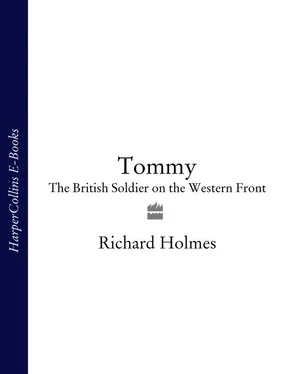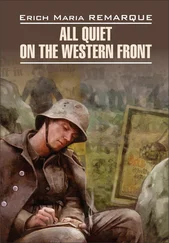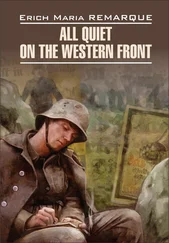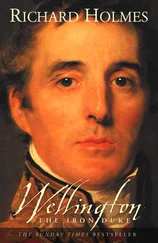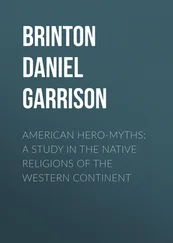It was understood that most pre-war regular officers would not be able to live on their pay: an infantry officer in an unfashionable regiment might rub along on a private income of £160 a year. In 1909 a territorial infantry subaltern, training part-time, pocketed 5s 3d a day and the lieutenant colonel commanding his battalion 18s, both rather less than their regular equivalents. In 1918 a gunner lieutenant received 10s 6d a day, and ‘with field allowances, etc, as long as I’m out here, I’ll be getting nearly £250 a year’. 7Officers habitually carried cheque books into battle so that they could pay for home comforts if they were captured: often a cheque drawn on Cox & Kings, in Germany, would find its way back via Switzerland, providing families with welcome news.
Soldiers’ pay was low, with an infantry private beginning on 1 shilling a day and a Royal Horse Artillery Warrant Officer picking up 6 shillings. A complex system of additions, via proficiency pay and suchlike, and deductions for things like ‘barrack damages’ complicated army pay, and Gunner Bill Sugden ruefully told his fiancée that at the end of the process ‘you end up with nothing at all’. He was fortunate because his employer, the decent Walter Heppenstall, topped up his army pay by sending his mother 5s a week. King’s Regulations established fines for drunkenness at 2s 6d for the first offence and 5 shillings for the second, rising to a punitive 10 shillings if the offence had been committed within three months of a previous lapse.
On the continent men were paid in local currency, and although exchange rates varied, a franc was worth 10d in mid 1916, and there were twenty-five to the pound at the end of the war. Transactions were complicated by the fact that while Banque de France notes were good throughout the country, small-denomination notes issued locally were met with a curt pas bon ici outside their area of origin. In 1917 a Christmas turkey, at 3s 2d a pound, cost 30 shillings, arguably better value than an up-market Parisienne lady of the night who charged a subaltern £8 for the pleasure of her company, leaving him to muse on the cost of living – and the cheapness of death.
In 1815 a War Office publication showing how the Soldier’s Pocket Book should be filled out gave as its example one Private Thomas Atkins, No. 6 Troop, 6th Dragoons. Atkins became a sergeant in the 1837 version, and was now able to sign his name rather than merely make his mark.
By the 1880s the expression ‘Tommy Atkins’ was in wide use to describe the prototypical British soldier, and Kipling’s poem Tommy summed up the nation’s ambivalence about her defenders.
… Then it’s Tommy this, an’ Tommy that an’ ‘Tommy, ’ows’s your soul?’ But it’s ‘Thin red line of ’eroes’ when the drums begin to roll …
… For it’s Tommy this an’ Tommy that, an’ ‘Chuck him out, the brute!’ But it’s ‘Saviour of ’is country’ When the guns begin to shoot; An’ it’s Tommy this, an’ Tommy that, an’ anything you please; An’ Tommy ain’t a bloomin’ fool – you bet that Tommy sees!
During the First World War the nickname was widespread, with derivatives like Tommy cooker, for a small trench stove, talking ‘Tommy’, to describe other rank repartee, or even ‘Tommyness’, to define certain attitudes and behaviour. When British and German soldiers yelled greetings or insults across No Man’s Land it was always ‘Fritz’ and ‘Tommy’.
A corporal writing in 1914 caught the man in all his lights and shades: ‘Sometimes Tommy is not a pleasant fellow, and I hated him that afternoon. One dead German had his pockets full of chocolate. They scrambled over him, pulling him about, until it was all divided.’ An engineer officer saw a large Frenchwoman fall into a canal, to be tugged to the bank by ‘two tommies’ who, in their eagerness to help, pulled her dress up over her head, demonstrating that knickers were not then universal in rural France. The expression was, of course, prohibited. A divisional commanders’ conference in October 1915 affirmed that: ‘The use of the word “Tommy” to be absolutely barred. The term is never permitted in a good regiment.’
The order had as much effect as so many others, and the nickname persisted, sometimes as Tommy, sometimes as Atkins, and once, memorably, as ‘Mr Atkins, gentleman’, used by an officer who saw soldiers helping refugees with gentleness and generosity. Nicknames are not always popular with their recipients, and such was the case with Tommy. Many soldiers felt patronised by it, and its English implication grated on Scots, Irishmen and Welshmen. But Sergeant Charles Arnold, himself a quintessential Tommy, declared that:
Tommy Atkins – full private – is, when all is said and done, the one who won the war. He won it by sheer dogged pluck … When is something going to be done for the man who isn’t a general or a guardsman or an Anzac, nor even a London Scot but just a clodhopper from Suffolk, or Devon, or Durham – the man who obeyed orders and stuck it out? Of this man little was heard, possibly because he had a habit of going into places a thousand strong and coming out a remnant of a hundred and fifty or so. Dead men tell no tales of their own glory.
I
Even his white cotton long johns, the last resort of comfort and dignity, are soaked by the mud he has been lying in for the past half hour. Although it is a fine night with bright moonlight, there is little promise of spring this morning of 2 April 1917, and the winter, the worst anyone can remember, still grips the front line as it snakes down from Arras towards Bapaume like a slimy and malevolent old serpent. The cold has its merits, for it makes lice less lively: there is scarcely a man within three miles of the front who is not aware of lice busy at his armpits and crotch. Corporal Thomas Atkins is lying towards the right-hand end of a line of eighteen similar figures, nine of them in his own section, on the western edge of a long spur with the village of Croisilles, houses roofless and walls gaping, but, unlike so many villages further west, still just recognisable as the little agricultural community it once was, on its far side. They are in No Man’s Land, with the rusting zigzags of the German wire out of sight in front of them. Behind them is another similar line: this little block of one officer and forty men constitutes No. 1 Platoon, A Company, 2nd Battalion The Queen’s Royal West Surrey Regiment.
To its left is No. 2 Platoon, looking much the same but, (for this is ‘Dozy Two’, the despair of the company sergeant major and a risk to all decent men) sounding noisier as Lieutenant Wills, its long-suffering commander, adjusts something that sounds, across the chilly night, like a sack of scrap metal. It can only be Private Desmond, the company idiot, who has unfortunately not been left back with the transport where he can do no harm to himself or others. There are worse places to be on this long morning, thinks Thomas Atkins, and with No. 2 Platoon is one of them.
Atkins is twenty-five and unmarried, and was a butcher’s roundsman in Peckham before he enlisted in late October 1914. He joined the army because everybody else was doing it, and he did not want to miss the excitement. And he chose the Queen’s because Jack Chamberlain, a roundsman with the same firm, had an uncle in the regiment, and told Thomas that its cap badge, the Paschal lamb, was the finest in the army. That was enough for a single train ticket to Guildford, and a long walk up the hill to Stoughton barracks, where a sergeant thought that there might just be two vacancies. Getting into the army was easier than getting to France, and it took three months of basic training – shooting on Ash Ranges and route marches along the Hog’s Back to Farnham – and another three of hanging about the depot before his name appeared on a typewritten list fluttering outside the orderly room. His draft, two officers and fifty-eight men, marched to Guildford station and went by train to Southampton. An overnight crossing in a cattle boat took them to Le Havre, whence they were shuffled by railway to an infantry base depot at Etaples, and then posted to the 2nd Battalion, out of the line near Poperinghe, behind Ypres.
Читать дальше
